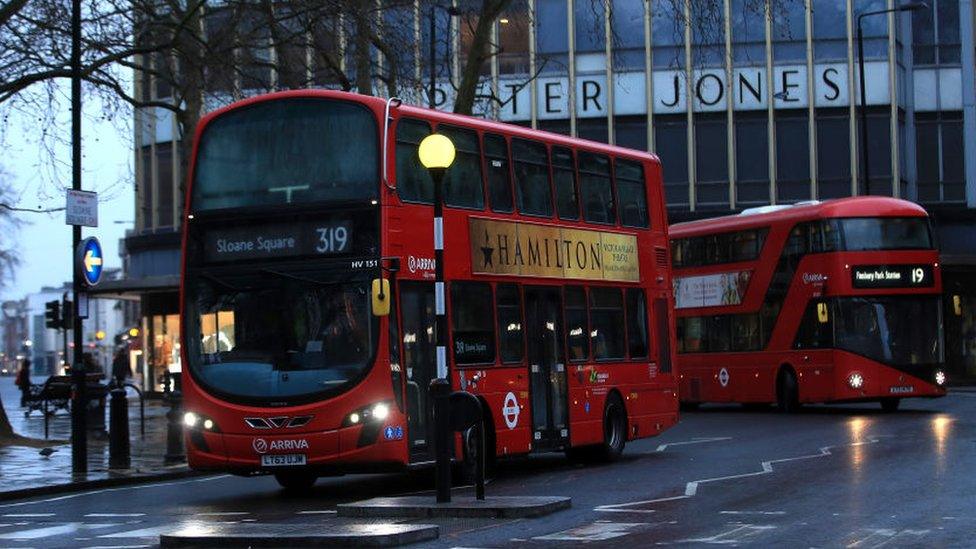Transport for London: A future with fewer fares
- Published
- comments
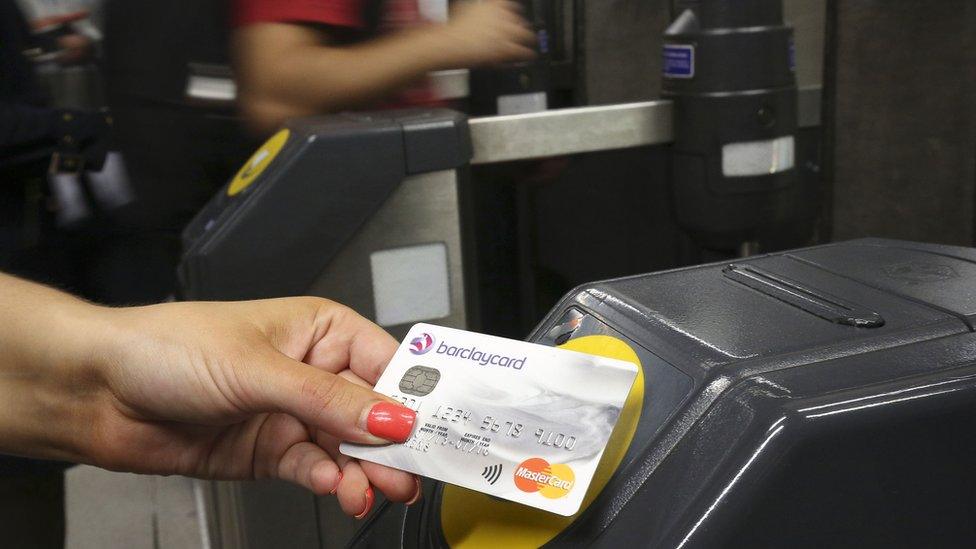
TfL is looking at new ways to generate an income after passenger journeys plummeted during the pandemic
Transport for London (TfL) has detailed new plans on how it will become self-sufficient in the long-term, a new document shows. , external
London generates 23% of the UK's GDP and is a net contributor to the Treasury of £38.9bn.
TfL has said it is a crucial part of this contribution.
Fares - previously its main source of income - have plummeted during the coronavirus pandemic.
It has since become reliant on government funds and will continue to need support into the next year, the transport body said.
But what will happen after that?
TfL wants a slice of the Vehicle Excise Duty funds deriving from vehicles in London - but if it does receive that, London Mayor Sadiq Khan said he would look at a Greater London boundary charge.
Vehicles registered outside London would have to pay £3.50 a day - or £5.50 for a more polluting non-ULEZ compliant car - to enter Greater London.
TfL estimates it would generate £500m a year.
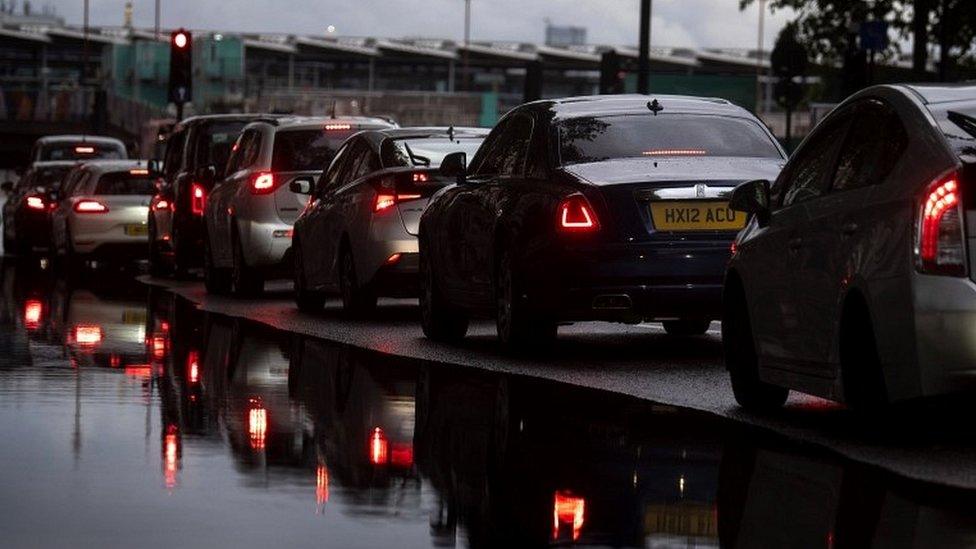
The congestion charge was introduced to the capital in February 2003
The politics of this are interesting.
Residents in the Home Counties - even though they work in London - do not have a vote for the mayor.
But what would stop Surrey or Hertfordshire starting their own charges for drivers travelling the other way?
Would road pricing - paying per mile - supersede the scheme anyway?
The ultimate plan is to save TfL at least £750m.
For this, bus services and off-peak tube services would be cut by 4%, while the re-opening of the Night Tube would be delayed.

TfL says plans to re-open the Night Tube will "depend on the continuing impact of the pandemic on demand"
The Transport Commissioner, Andy Byford, said he would not support any substantial cuts.
"But having said that, the world is changing due to Covid and we don't know if ridership will return in the way we have seen it," he said.
"I don't think it's unreasonable to look at tweaks to the service."
TfL could also become more commercial by borrowing more money to build 50,000 homes to rent or sell.
Could it become a huge landlord with a transport department added on?
TfL also want £1.6bn a year from the government to modernise the Bakerloo and Piccadilly lines.
Vauxhall Bridge, the Rotherhithe tunnel and the flyovers at Brent Cross would face part-closure in the coming years without investment.
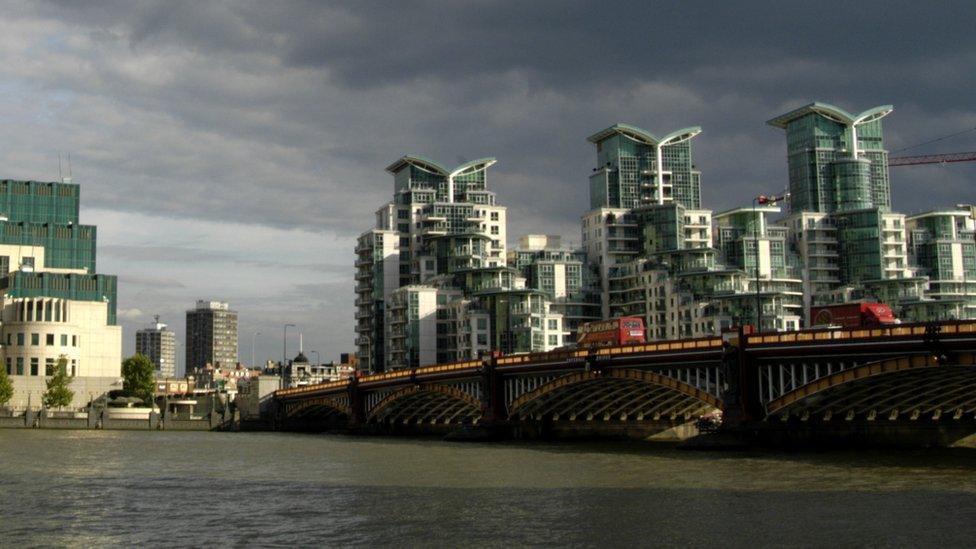
TfL warns Vauxhall Bridge, a major pinch point for traffic in London, would face part-closure in the coming years without investment
There are already some dissenting voices.
Mick Cash, general secretary of the Rail, Maritime and Transport Workers Union (RMT), called the plan "a massive missed opportunity and a capitulation to Tory austerity".
The RMT has already promised to fight any changes to jobs, pay or pensions "with every weapon" at its disposal.
Mr Cash said: "TfL could have used this moment to aggressively make the case for setting its funding on a completely new basis.
"Making the case for public funding that recognises the public interest in London's mass transit system."
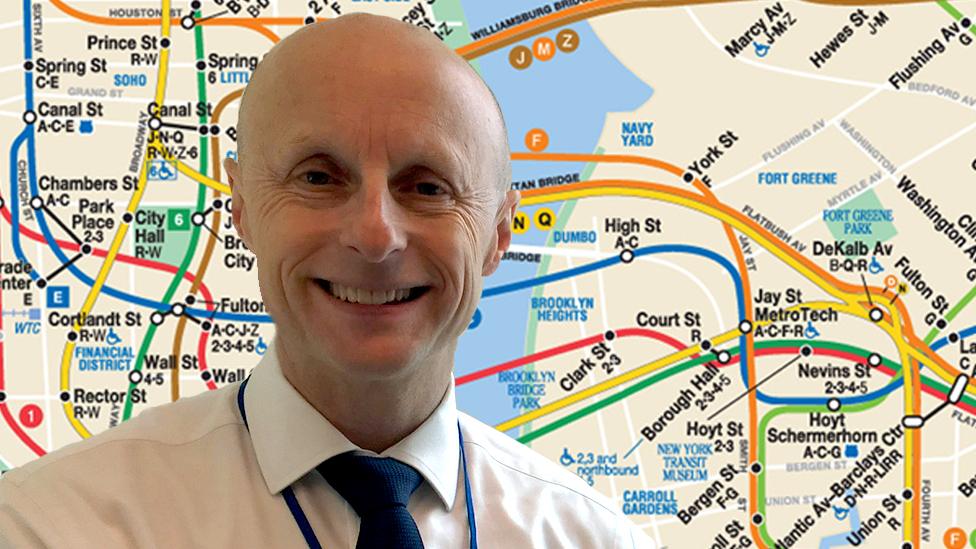
Andy Byford started his career as a uniformed station foreman for London Underground
Mr Byford said: "You need to take the long term view. I'd say to the government that we are part of the solution.
"If you want to decarbonise by 2030 then we can be part of that. Also the job creation and the levelling up objective buying buses in Ballymena, Falkirk and Leeds.
"You've got to continue to invest, the alternative is you see a relentless decline in reliability."
TfL's pitch is due to be discussed with central government later this year.
If previous talks are anything to go by, negotiations will not be easy.
Related topics
- Published28 October 2020
- Published27 October 2020
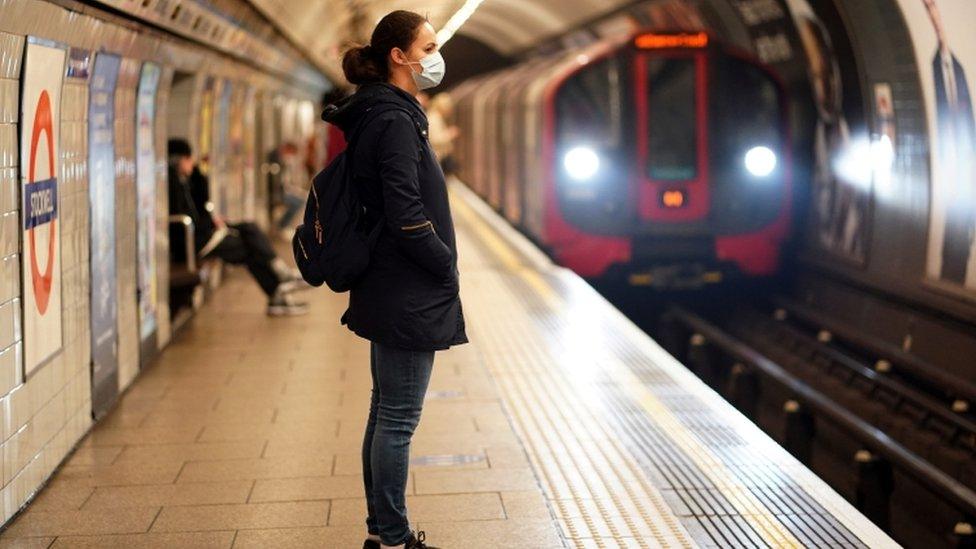
- Published27 July 2020
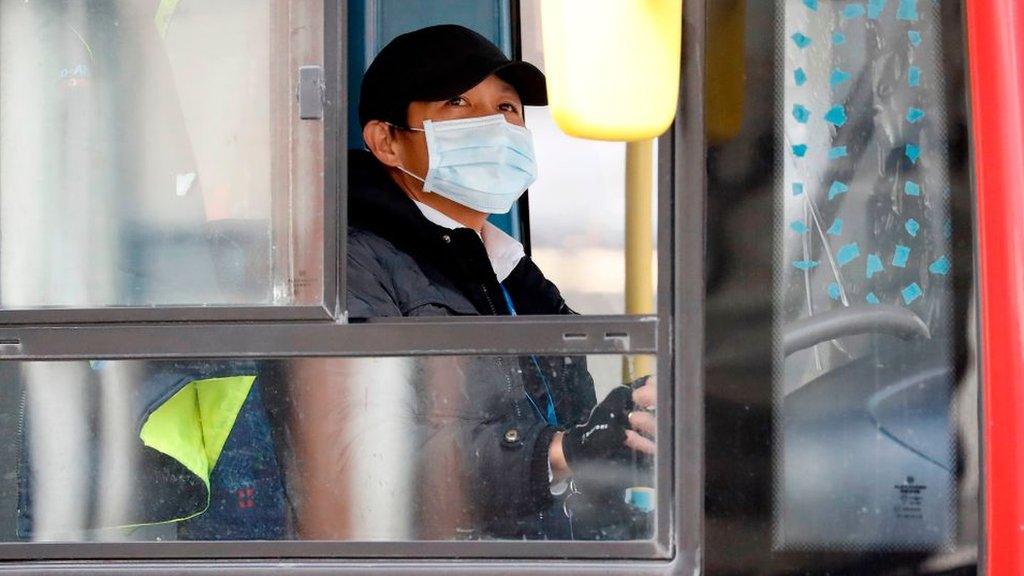
- Published4 April 2020
